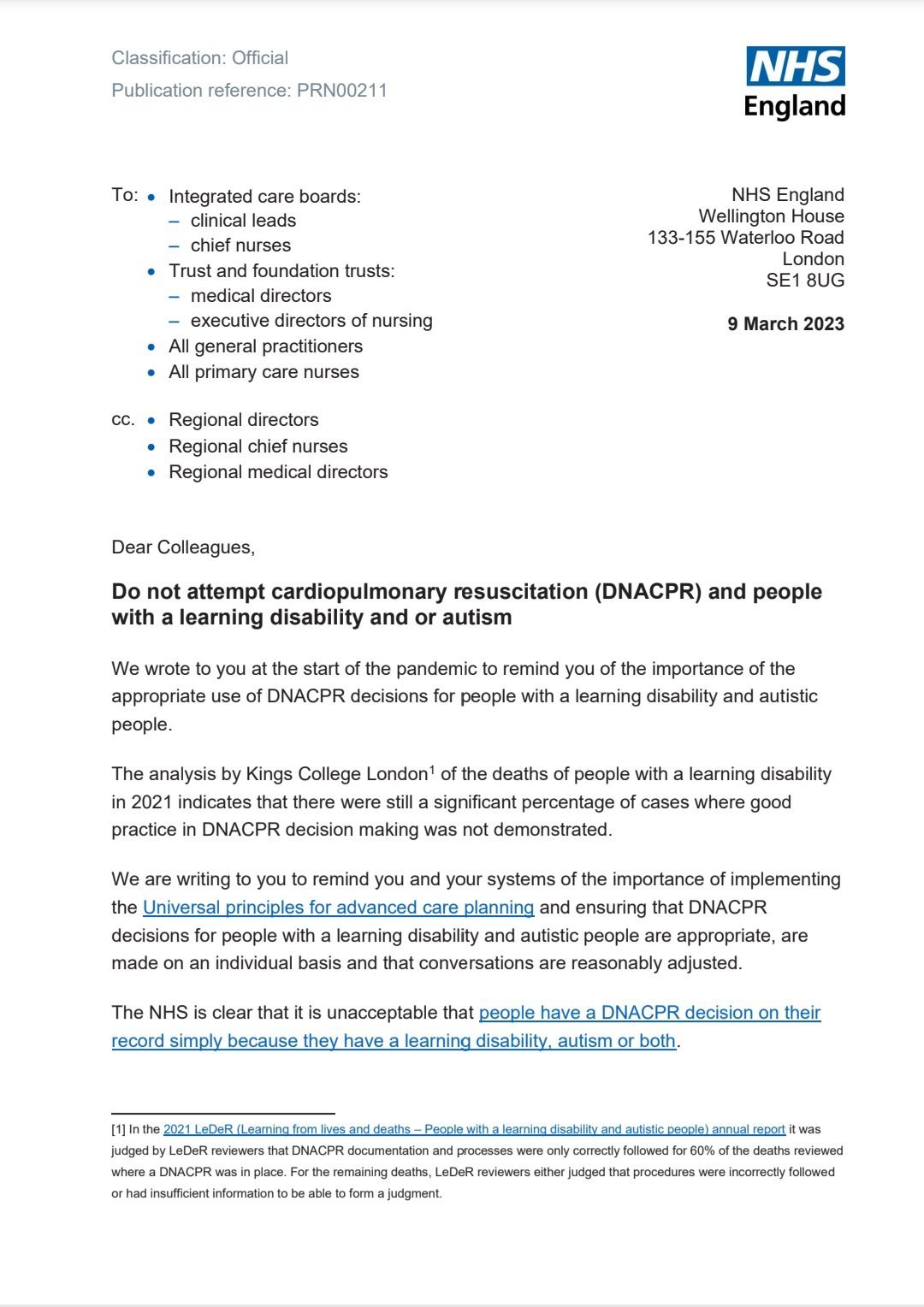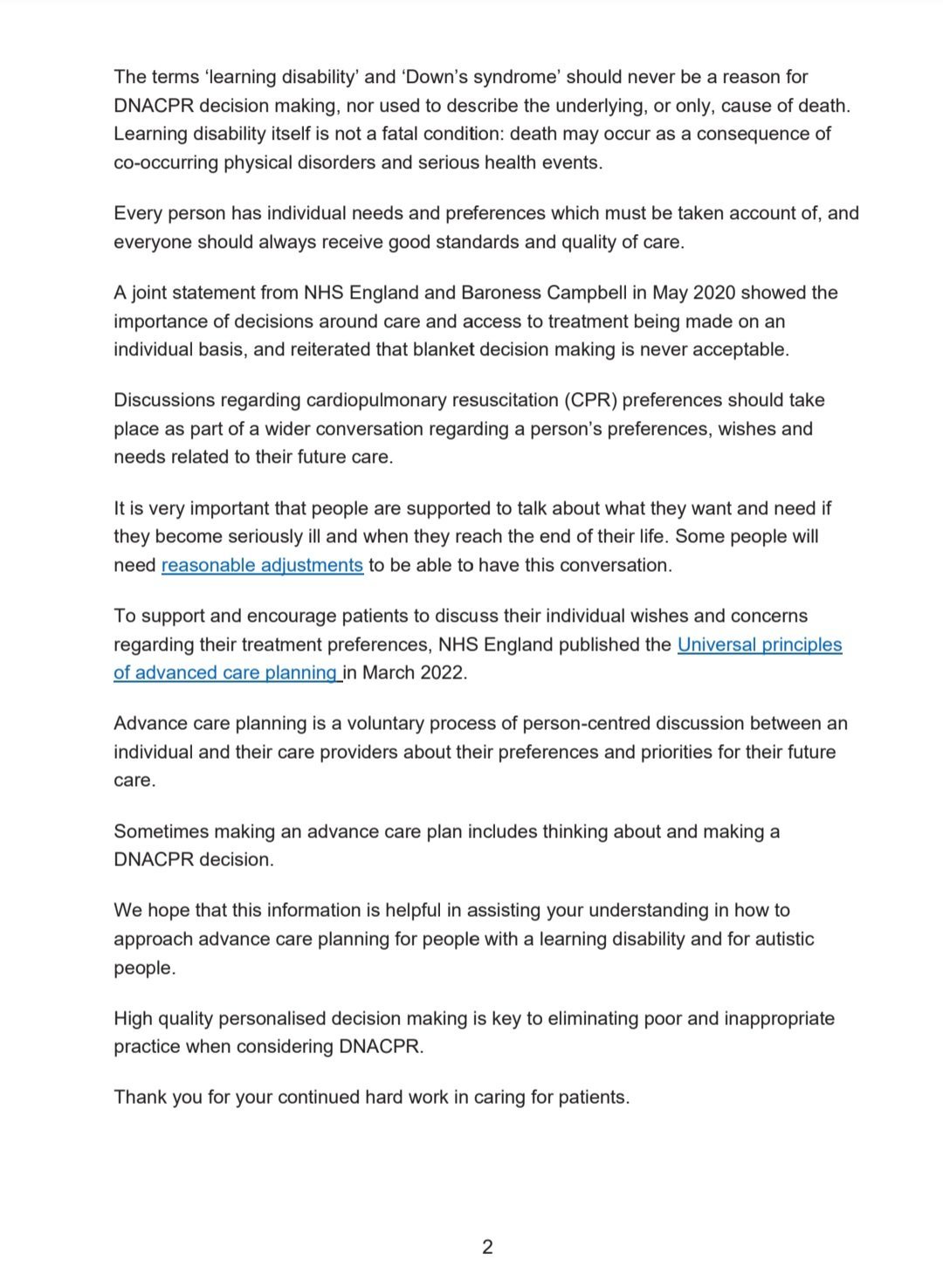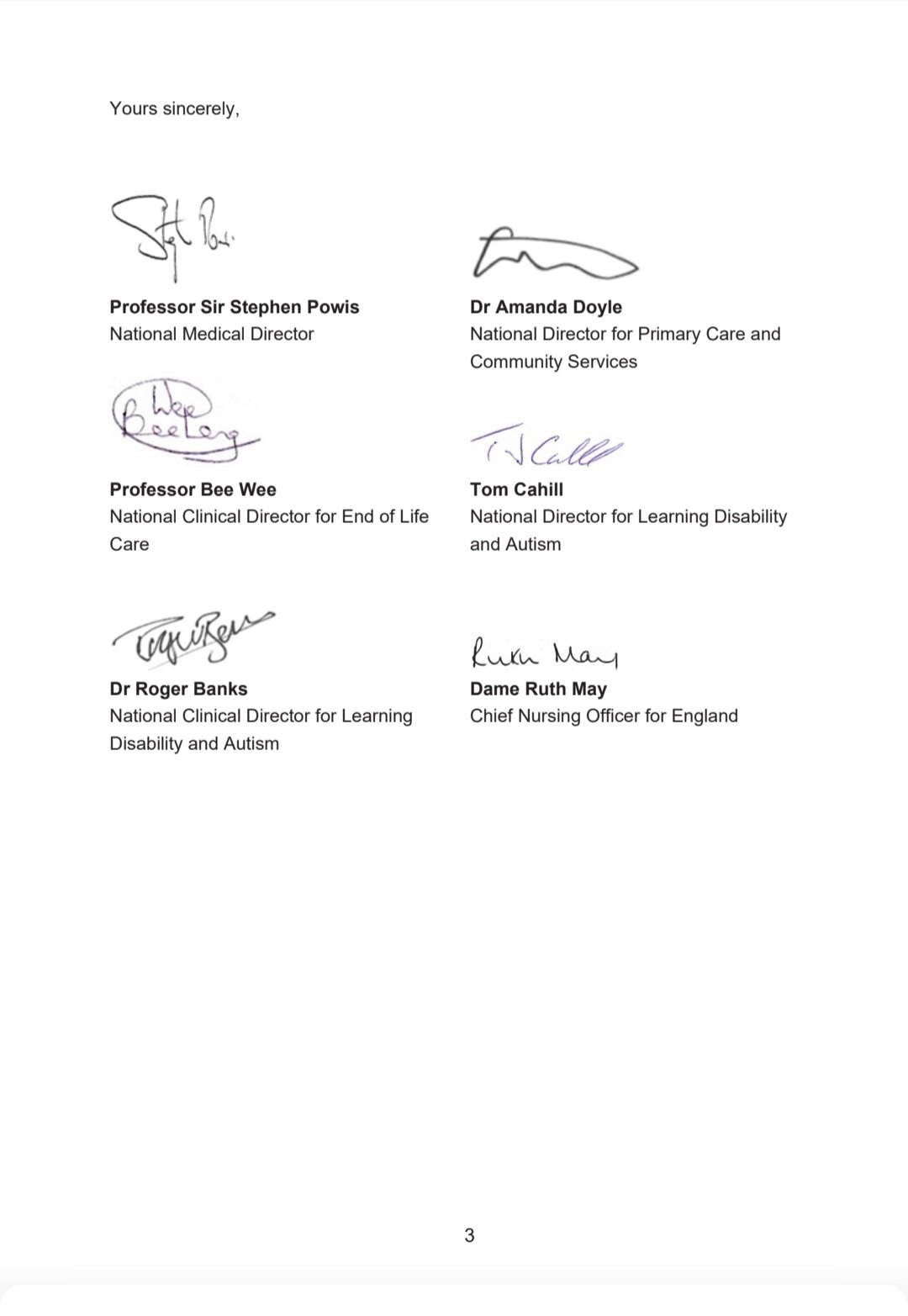Not many are aware that since the COVID pandemic, DNR (Do not resuscitate ) was stamped onto children and adults with a learning disability and / or autism’s medical notes.
The Health Committee report examines UK COVID decisions – including a blanket Do Not Resuscitate order given to COVID patients with learning disabilities
The 150-page report covers a wide expanse of issues faced by the population during the worst of the COVID pandemic, including social care. The report authors, a coalition of cross-party MPs, say that social care was overlooked in early strategic planning for how to deal with the public health crisis.
Care homes dominated news cycles, as infection rates tore through their populations and controversially, COVID positive residents were forcefully sent back from hospitals due to capacity issues.
In a way, care homes became too symbolic of the social care sector – with decision-makers failing to allocate resources or timely strategies to the everyone in the rest of the sector.
“Disproportionately high mortality rates”
However, people with disabilities and autistic people also suffered from a lack of care, “disproportionately high mortality rates” and existing health inequalities – which came to the surface in an undeniable way, similarly to how socio-economic inequalities shaped COVID outcomes. In fact, often, there was an overlap between the two.
According to the authors: “The loss of normal social support and care during the pandemic was part of a larger sense that people with learning disabilities were being overlooked by the Government.”
Giving evidence to the Health and Social Care Committee, Vivien Cooper, founder of the Challenging Behaviour Foundation, said that people with learning disabilities and autistic people have just been considered as an “afterthought” when COVID protection policies were being created. While there is an understanding of why elderly care home residents were prioritised, she explains that this came at “the expense” of the rest of the social care sector.
Blanket DNR for COVID patients with learning disabilities
In August, 2020, we reported that COVID patients with learning disabilities were automatically being labelled Do Not Resuscitate – without any prior consultation.
Anonymous healthcare staff said that they found the “blanket DNACPR” decision to be “challenging”, ethically, and professionally. This DNR decision was made for elderly residents without any discussion with the patient, their families or even care home staff who know them. This blanket DNR decision came from doctors or clinical commissioning groups, who had no way to interpret the wishes of a patient they did not know.
This happened despite strict guidance from the NHS in April, 2020, which said that the existence of a learning disability should never be used as a valid reason for a blanket DNR order.
Steve Scown, Dimensions UK, told the Health Committee that DNRs had been placed on individuals with no “prior consultation” with their families.
He further said: “We had medical staff placing those on medical records without due process. That basically means that if the person becomes ill you do not attempt to resuscitate.
“The fact that they were placed on files without any meaningful conversation with families or any other professional is, frankly, disgraceful.”




